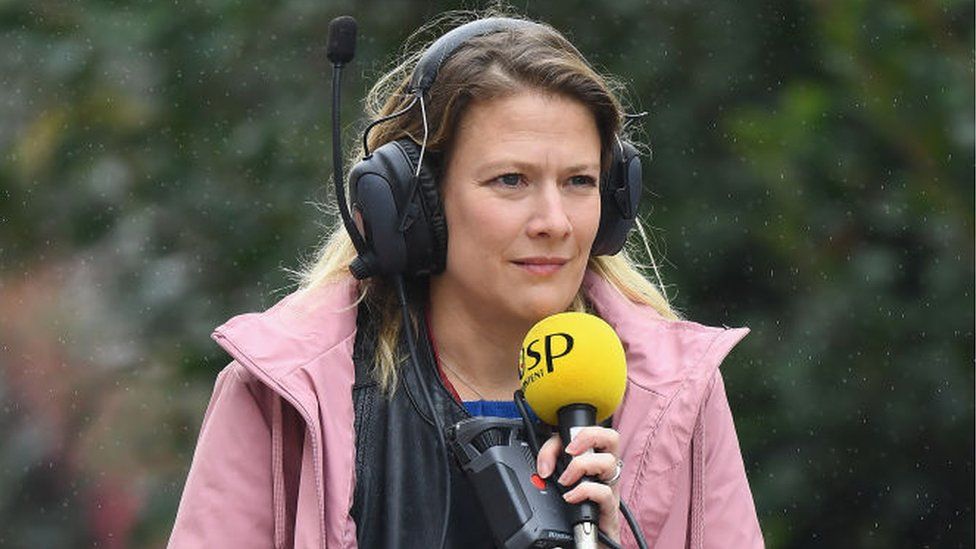Jennie Gow: BBC F1 broadcaster suffers serious stroke
The BBC sports broadcaster Jennie Gow has said she is recovering from a serious stroke.
The 45-year-old, who covers Formula 1 for Radio 5 Live, wrote on social media that she had been treated at hospitals in London and Surrey, and her recovery “might take some time”.
Ms Gow said the stroke two weeks ago had affected her speech.
Dozens of fellow broadcasters and motorsport firms have tweeted messages of support.
Announcing her condition on Twitter and Instagram, the presenter said: “My husband is helping me type this, as I’m finding it hard to write and my speech is most affected.
“I’m desperate to make a full recovery and return to work.
“Thank you to the medical teams at Frimley and St George’s, and my family and friends who’ve got me through the last fortnight.”

In response, Formula 1 Racing tweeted: “Thinking of you Jennie, and wishing you all the very best with your recovery.”
The McLaren racing team said: “The entire team sends their love and strength as we look forward to seeing you back in the paddock.”
Broadcasters Hazel Southwell, Laura Winter and Dan Walker are among those who have tweeted messages of sympathy.
Jennie Gow has covered Formula 1 and other motorsport events for the BBC, ITV, Netflix and Sky TV.
The Southampton-born presenter, who grew up in Wargrave, Berkshire, began her broadcasting career at BBC Radio Solent before working for commercial radio stations in the south of England.


- A stroke happens when the blood supply to part of the brain is cut off, killing brain cells.
- That can be due to a clot in a blood vessel, blocking the flow. Or, a vessel can burst.
- There are different reasons or risk factors. People may be born with or develop weaker blood vessels. Some medical conditions such as diabetes, high blood pressure or high cholesterol, can be a factor.
- Some lifestyle habits, such as smoking and eating an unhealthy diet, can contribute too.
- Stroke is an emergency – rapid treatment can save lives and prevent disability. If you think someone is having a stroke, act FAST.

Follow BBC South on Facebook, Twitter, or Instagram. Send your story ideas to south.newsonline@bbc.co.uk.













